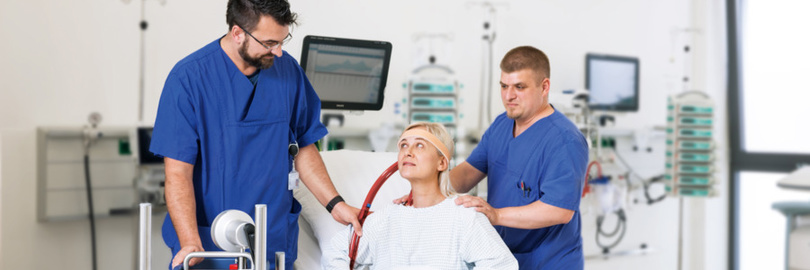Why peer support matters in ECMO nursing
As the use of ECMO expands globally, so too do the demands on nursing teams.
In response to the lack of specialized training and standardized care protocols for nurses expected to support or even lead ECMO management, a group of ICU nurses in Germany launched a dedicated national network in 2022 — an accessible, practice-oriented platform designed to foster hands-on support and continuous learning across institutions.
"We noticed that many nurses felt isolated when handling ECMO cases — especially in hospitals with only occasional ECMO use. Our goal was to create a supportive space where no one has to face these challenges alone," explains Tobias Wittler, spokesperson of the ECMO network and deputy head nurse, intensive care unit, Marienhospital Osnabrück.
The network, which now includes staff from over 30 hospitals, provides a real-time messaging channel where members can ask urgent questions and receive input from peers within minutes. Whether it’s confirming a decision, exploring alternative solutions, or simply receiving reassurance from someone with hands-on experience, the support is immediate and pragmatic.
Building nursing-led standards
Beyond urgent help, the network has taken on broader challenges: identifying gaps in care approaches and developing practice-based standards. Topics such as patient mobilization, sedation protocols, or delirium management have become core areas of discussion — reflecting the evolving role of nursing in ECMO therapy.
"The focus is shifting: ECMO care isn’t just about ventilation or circulatory support anymore. Nursing care plays a growing role in patient outcomes," says Tobias Wittler.
The network empowers nurses to collaboratively define best practices where none exist, with particular emphasis on onboarding new staff and developing realistic, context-sensitive training concepts such as simulations or modular learning plans.
Trust, not competition
One unique feature of the initiative is its culture of open, non-competitive exchange.
"It’s not about being the best hospital – it’s about learning from each other to do what’s best for the patient," adds Tobias Ochmann, deputy spokesperson of the ECMO network, nursing expert (APN), certified intensive care and anesthesia nurse, Catholic Marienkrankenhaus Hamburg.
The egalitarian atmosphere allows for honest questions and mutual respect. Participants frequently highlight how the absence of hierarchy facilitates real conversations – especially around complex, high-pressure cases.
Outlook and opportunities for adaptation
While the network currently operates within Germany, its structure and principles could easily be replicated in other countries or regions. In fact, the model is gaining attention beyond nursing: physicians and other professionals have expressed interest in joining or adapting the concept.
Future plans include an annual symposium open to all ECMO nurses, and a quarterly newsletter featuring research highlights, training opportunities, and clinical updates. For now, the focus remains on maintaining a nurse-centered platform that strengthens ECMO practice from the ground up.
"Too often, care protocols are written about nurses, not by them. We want to change that – by giving nurses a voice and the tools to shape ECMO care for the future," says Tobias Ochmann.
Conclusion
As ECMO becomes more prevalent in intensive care worldwide, the need for collaborative, nursing-led frameworks grows. Germany’s ECMO peer network demonstrates how frontline professionals can take the lead in shaping better care – for their patients, and for each other.
